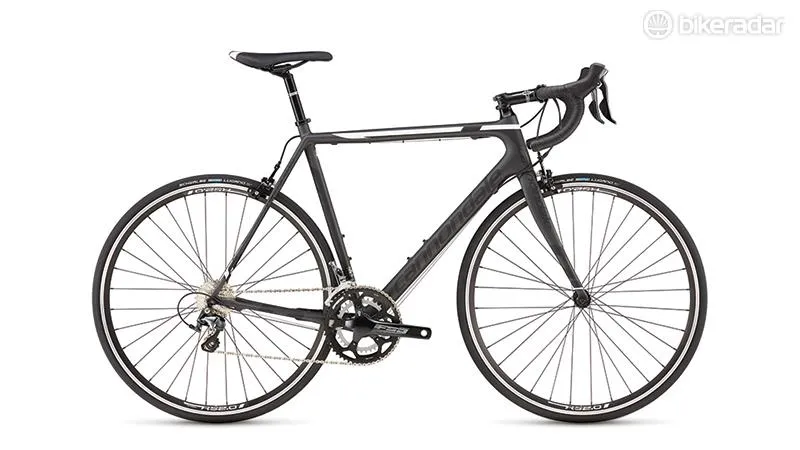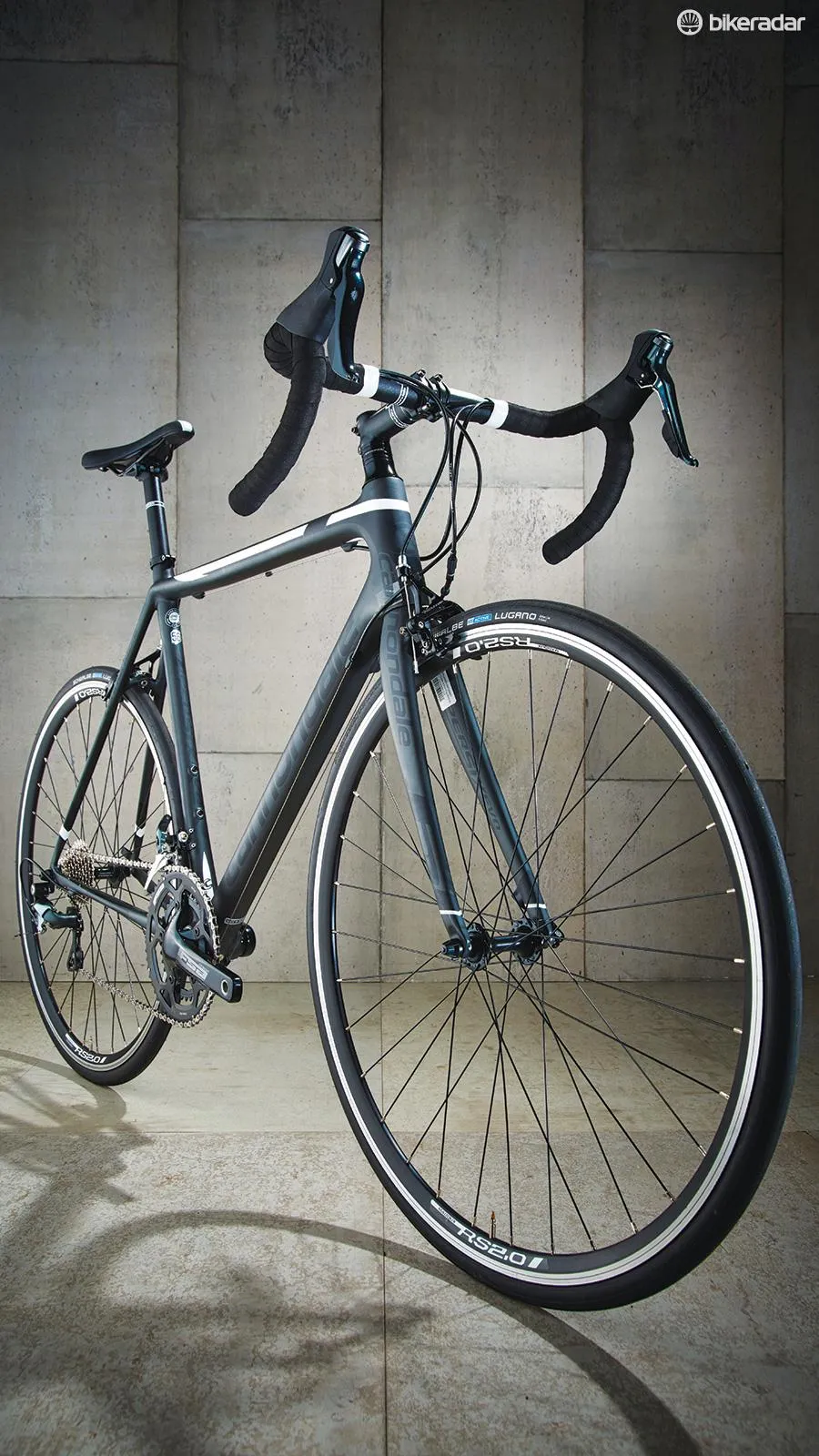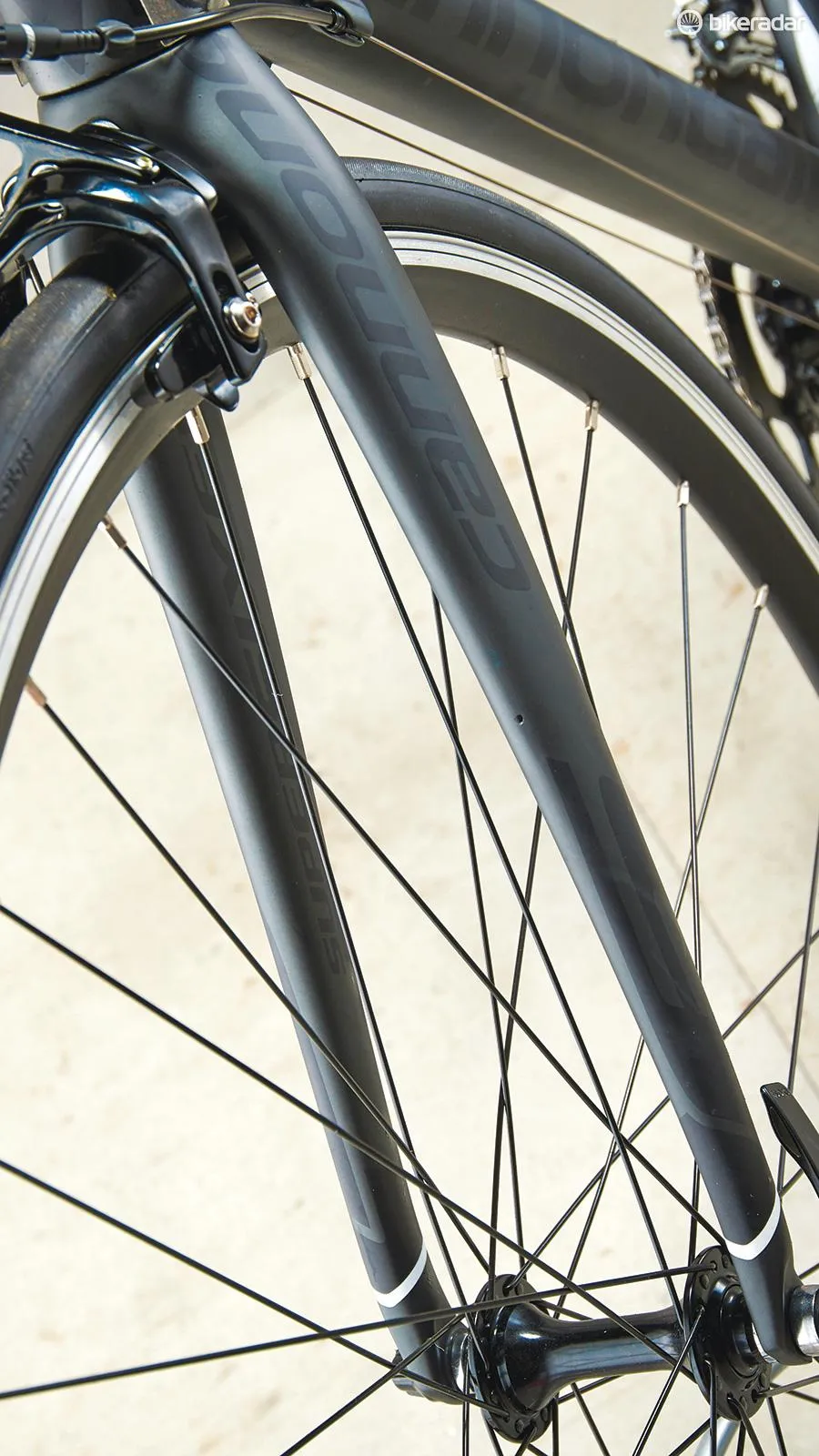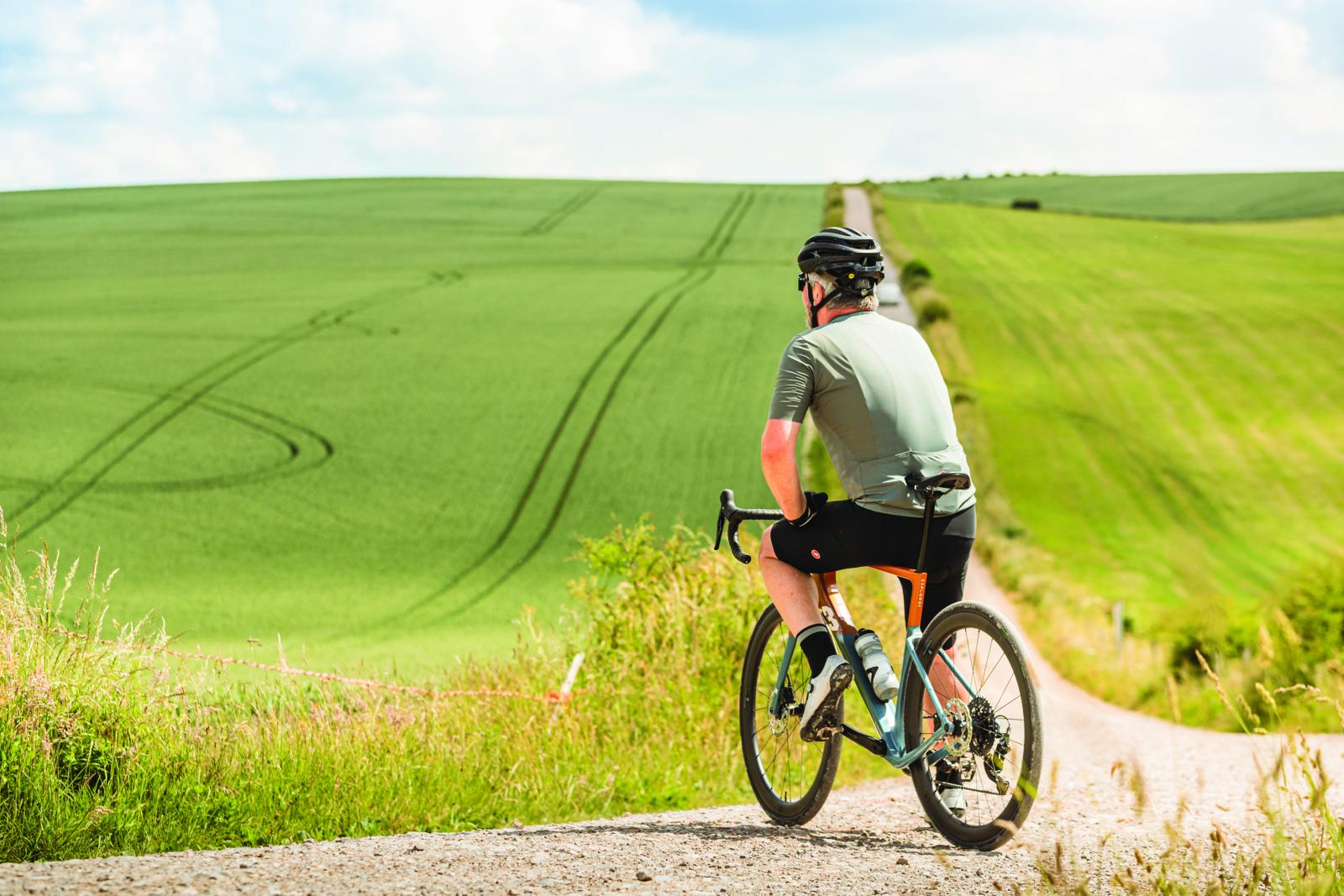The Cannondale SuperSix Evo’s frame configuration is exactly the sort of thing that gets us excited about race bikes: steepish, parallel head and seat tube angles and a short, sub-1m wheelbase. It’s an arrangement that contributes to a machine with a real snap in the way it changes direction, and provides a riding position that’s low, long and aggressive.
Cheaper carbon, limited drivetrain compatibility
So far, so good. But this model is made from standard-modulus carbon rather than the high-modulus equivalent used in the pro-level Team frame. And its cables are all routed externally, which has the side effect of rendering this version of the SuperSix frame incompatible with either Shimano Di2 or Campagnolo’s EPS electronic shifting systems. Hardly a disaster but it may limit the bike’s appeal if you are considering upgrading to electric shifting in the future.
But aside from those minor quibbles, everything else that we love about the SuperSix Evo Hi-Mod Team is present and correct here, most notably the nimble handling and stiffness through the BB30 bottom bracket shell.
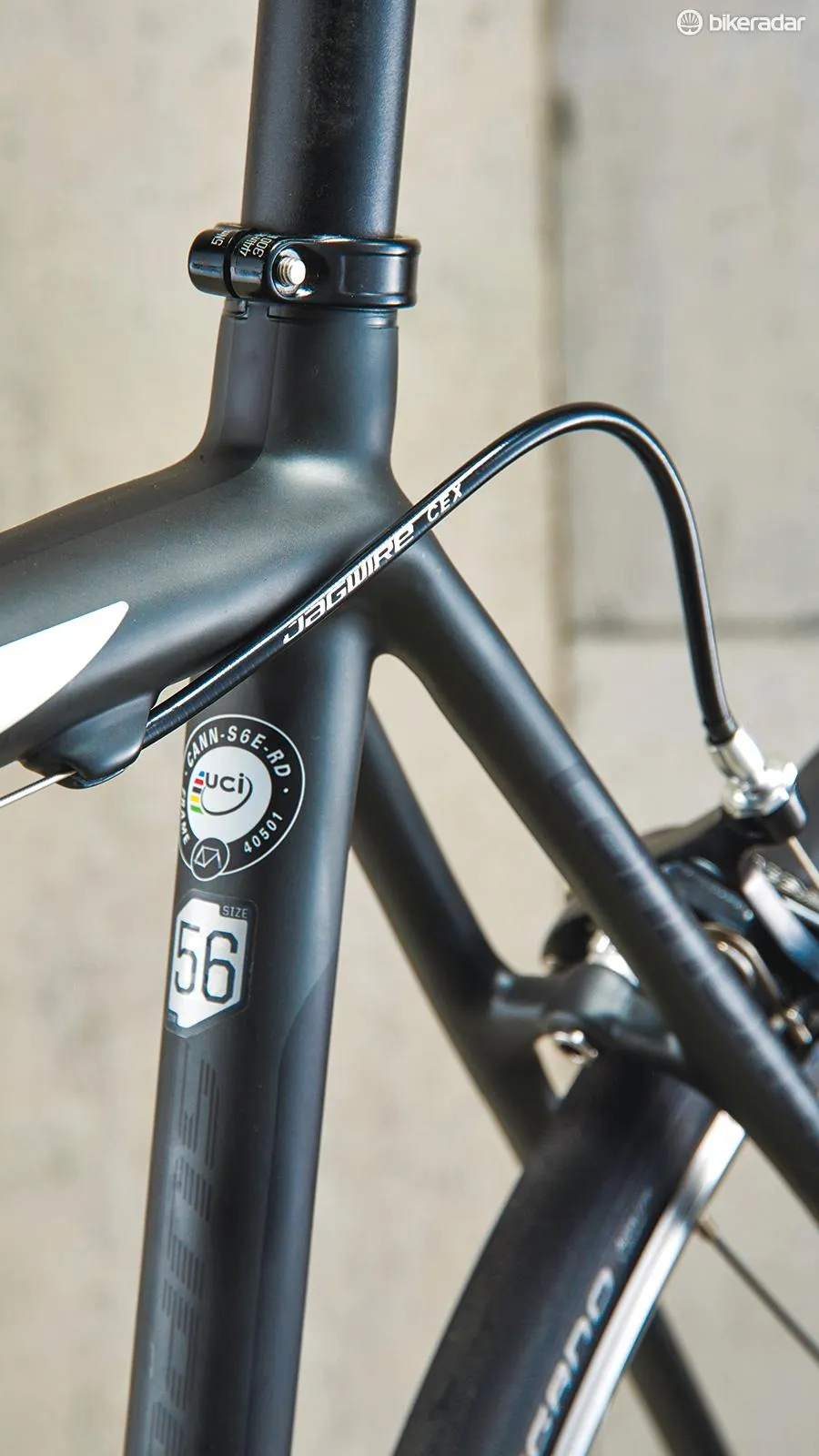
External cabling means you can’t upgrade this to Di2
The Cannondale delivers when it comes to comfort too. The combination of the twisted, flattened chainstays and slender, kinked seatstays smooths out the roughest roads, with the fork’s rolled tips and slender legs doing much the same at the front.
It’s a super-smooth ride and even if you stay in the saddle while stamping down on the pedals the SuperSix still manages to float over coarse, pockmarked tarmac.
Also, like Giant’s rival TCR Advanced 3, this comes with a 10-speed largely Tiagra drivetrain, though here it’s a little racier thanks to the 52/36 crankset, compared with the TCR’s 50/34. It’s a lower-tier FSA unit, which doesn’t look as classy as the actual Tiagra unit but is used because Shimano doesn’t offer a BB30-compatible crankset.
Frustrating kit list compromises
While the Tektro brakes are capable enough performers they're also step down, being less positive than Tiagra, and they have a slight softness at the lever when you’re braking hard. This is by no means a game-changer or dealbreaker, but is slightly disappointing.
Cannondale has also made some other kit concessions to hit the price point, the most obvious of which are wheels that pair Maddux RS2.0 rims with basic Formula hubs. The 32-spoke rims weigh about 580g each and though the 25mm Schwalbe Lugano tyres roll reasonably smoothly, they’re also pretty hefty and take the edge off of the SuperSix’s usual climbing ability.
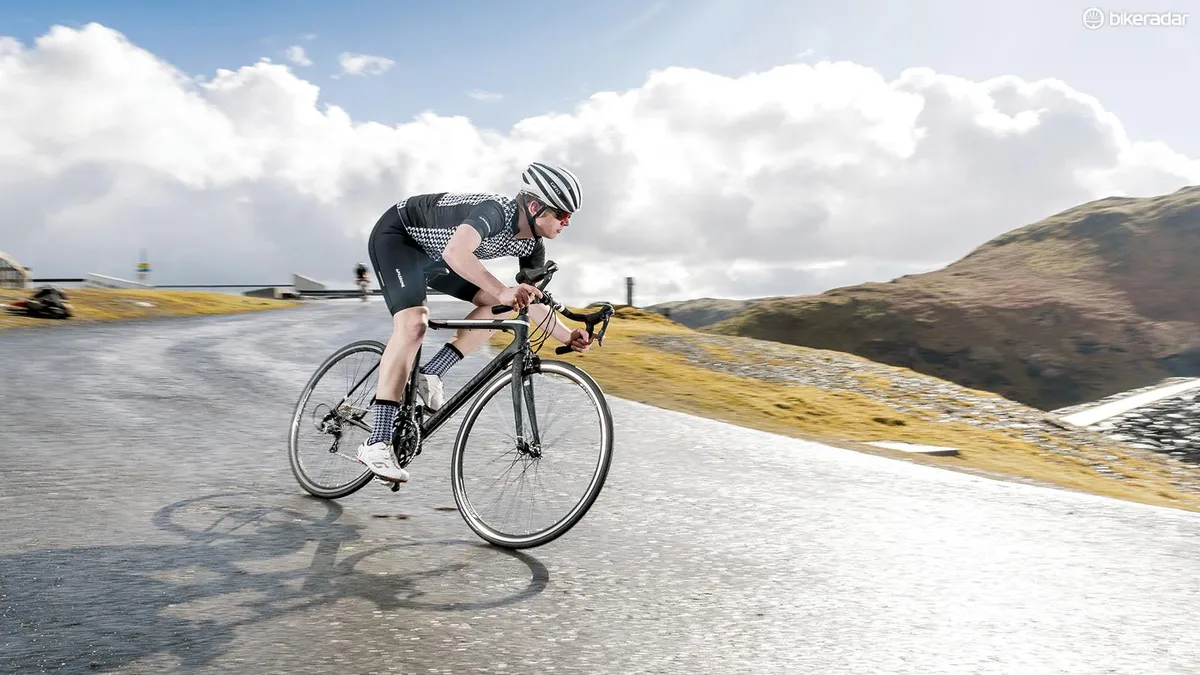
This budget-friendly Evo still masters descents with a pitch-perfect agility
The result is a bike that feels just a little bit too compromised by its rolling stock when going up. That's almost made a teensy bit more annoying by the fact that going downhill, it masters descents with a pitch-perfect agility you'd expect from a SuperSix. It’s very capable of holding the tightest cornering lines with an assurance and stability that will make you faster, no doubt about it.
The biggest issue facing this bike, however, is the existence of our current bike of the year – the Cannondale CAAD12 105. That aluminium-framed steed is half a kilo lighter in the same size, with a higher-grade drivetrain, brakes and wheels, not to mention Cannondale’s lovely Si chainset.
The two bikes share the same sorted Cannondale race geometry, but you just get so much more bang for your buck with the CAAD12.
Cannondale CAAD12 105 – Bike of the Year 2016 Winner
